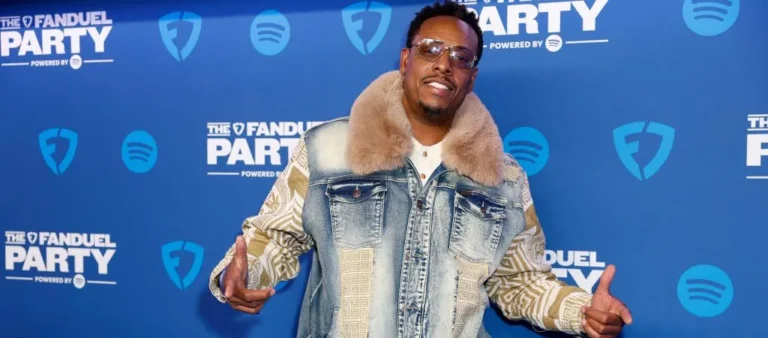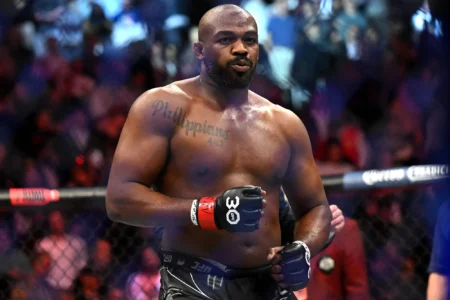NBA legend Paul Pierce is no stranger to controversy, and once again, he’s setting the internet ablaze with a brutally honest take that has reignited the cultural debate around love, commitment, and the evolving dynamics of modern masculinity.
On a recent episode of his podcast The Truth After Dark, the former Boston Celtics champion didn’t hold back when he declared: “Marriage has no benefit for a man.” The comment, delivered with the candor and swagger Pierce is known for, immediately went viral—sending shockwaves through social media and prompting intense discussions across the entertainment and sports worlds.
From Championship Rings to Divorce Papers: Pierce’s Journey
Pierce’s bold statement wasn’t made in a vacuum. It stems from deeply personal experience. The Hall of Famer finalized his divorce from Julie Pierce in 2021 after more than a decade of marriage. Since then, he’s embraced singlehood with open arms—and even more open opinions.
Known for his no-filter approach, Pierce often uses his platform to speak on relationships, dating culture, and male independence. His Instagram Stories and podcast episodes are filled with unfiltered commentary that both infuriates critics and energizes fans.
In Pierce’s eyes, modern relationships—especially marriage—are structured in ways that can disadvantage men, particularly those in high-pressure, high-income careers.
A Pattern of Unapologetic Honesty
This isn’t the first time Pierce has ruffled feathers. After his highly publicized departure from ESPN in 2021—following a controversial Instagram Live—Pierce didn’t play the victim. Instead, he used the spotlight to call out what he described as hypocrisy among his peers.
“All the people coming after me, half of you do the same s—,” he said during a candid interview that year. “You’re just hiding it. And you’re married while doing it. I’m divorced. I’m retired. I’m having fun.”
His words weren’t just a defensive jab—they were a philosophical statement. Pierce, now free from corporate and marital obligations, is leaning into a lifestyle centered on personal liberation, authenticity, and zero apologies.
Freedom Over Fairytales: A New Male Narrative
In the age of social media, influencers, and hyper-visibility, men—especially high-profile ones—are increasingly vocal about redefining success and happiness on their own terms. For Pierce, love isn’t the issue. It’s the expectation that men should compromise their autonomy, finances, and sometimes peace of mind for the sake of a relationship that society deems “complete.”
His perspective resonates with a growing demographic of men who view traditional marriage as an outdated institution—one that often prioritizes social optics over personal growth.
In a society where divorce rates hover around 40–50% in the U.S., and alimony or custody battles can become emotionally and financially devastating, it’s no surprise that Pierce’s take found an audience.
Is Marriage Still Worth It? Celebrities and Fans Weigh In
While critics accuse Pierce of being cynical or emotionally closed off, others see his stance as brutally honest—and necessary. In the comments section of Shade Room reposts and Twitter threads, fans applauded his honesty:
- “He’s just saying what a lot of men are afraid to admit.”
- “Marriage benefits women way more than men. He’s not lying.”
- “That’s freedom talking.”
Others, however, pushed back hard:
- “Sounds like someone who failed at love.”
- “There are good marriages out there—he just wasn’t in one.”
Still, this divergence in opinion is exactly why his comment struck a chord. It highlights a deeper societal conversation: Is traditional marriage still compatible with modern expectations?
The Rise of Anti-Marriage Sentiment Among Male Celebrities
Pierce isn’t the only public figure raising eyebrows with commentary on marriage. In recent years, several male celebrities—from Kanye West to Andrew Tate—have criticized traditional relationship models. Though their reasons differ, the common thread is male disillusionment with societal norms around love, commitment, and identity.
Even actors like Jonathan Majors, who recently wed Meagan Good in a private ceremony, face scrutiny and speculation when navigating marriage in the public eye. Elsewhere, Gabrielle Union publicly rethought her 50/50 marriage arrangement with Dwyane Wade after therapy, adding layers to the conversation around emotional labor and shared responsibilities.
The message is clear: Modern love is evolving—and men are finally saying so.
Not Bitterness, But Recalibration
Despite accusations of bitterness, Pierce’s tone doesn’t reflect someone angry at love. Instead, it reflects a man who has redefined what love and success mean to him. In a society where men are often discouraged from speaking out about emotional or relational dissatisfaction, Pierce’s bluntness is a rare form of emotional transparency.
He’s not rallying against women or romance—but against what he sees as a system of expectations that no longer make sense for men who have the freedom to live differently.
A Cultural Shift: From Romance to Real Talk
We are witnessing a generational shift. Younger men—particularly those who’ve seen marriages fail in their families or communities—are increasingly cautious about tying the knot. Influencers, thought leaders, and celebrities are now bringing that private skepticism into public discourse.
In the words of one TikTok creator reacting to Pierce’s podcast:
“This isn’t about hating marriage. It’s about asking what men get out of it in 2025.”
Expert Voices Weigh In
According to Dr. John Gray, author of Men Are from Mars, Women Are from Venus, traditional gender roles in relationships have shifted dramatically in the 21st century. “Men today are expected to be emotionally present, financially stable, romantically attentive, and domestically supportive—at all times,” he notes.
That’s a tall order, particularly for men navigating fame, success, or public scrutiny.
Dr. Helen Fisher, a biological anthropologist, echoes this: “Marriage used to be a financial and social alliance. Today, it’s a romantic ideal—and we’re still learning how to live up to that.”
Final Thoughts: A Man Redefining His Own Truth
Paul Pierce’s provocative take isn’t meant to cancel marriage or discourage love. Instead, it’s a reflection of one man’s hard-earned clarity about what works—and what doesn’t—in his life.
In an era where personal freedom is often equated with happiness, Pierce is simply choosing a different path. Whether people agree or not, one thing is certain: he’s forcing a necessary conversation.
As society continues to evolve, so too does the definition of relationships, love, and success. And if Paul Pierce’s truth sparks discomfort, maybe it’s because it hits closer to home than most would like to admit.








